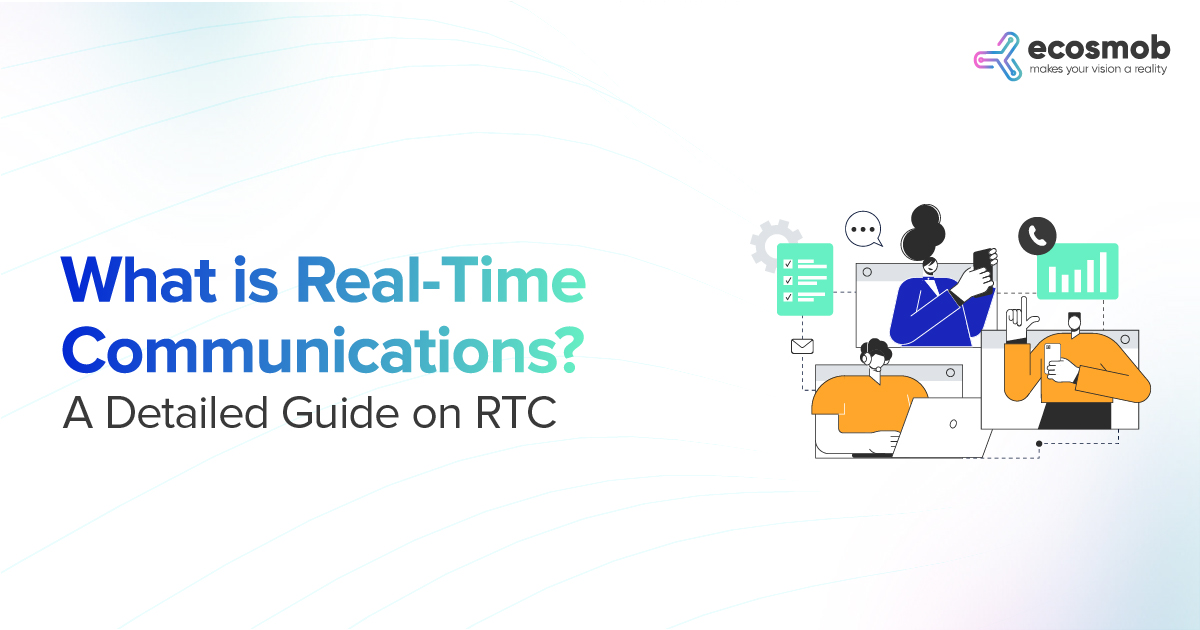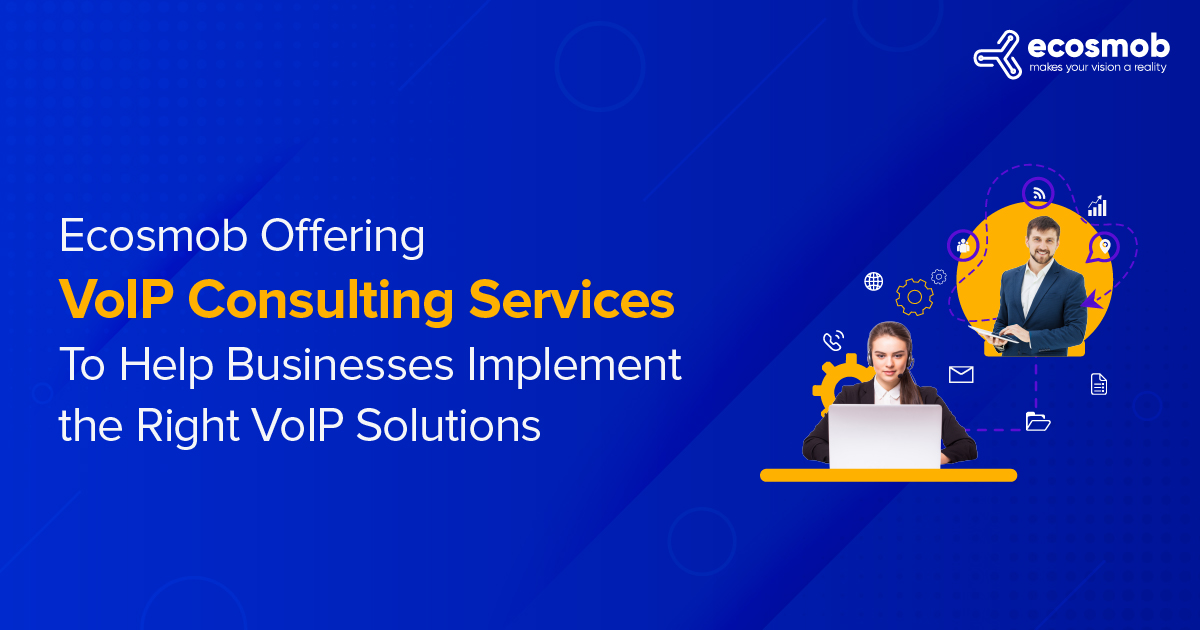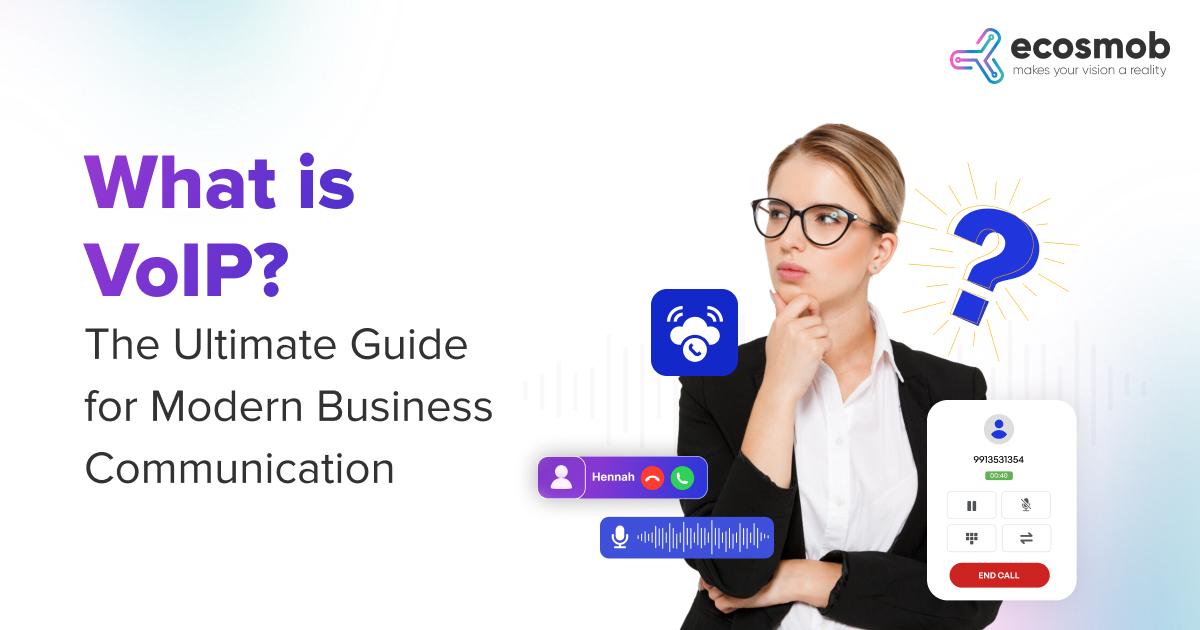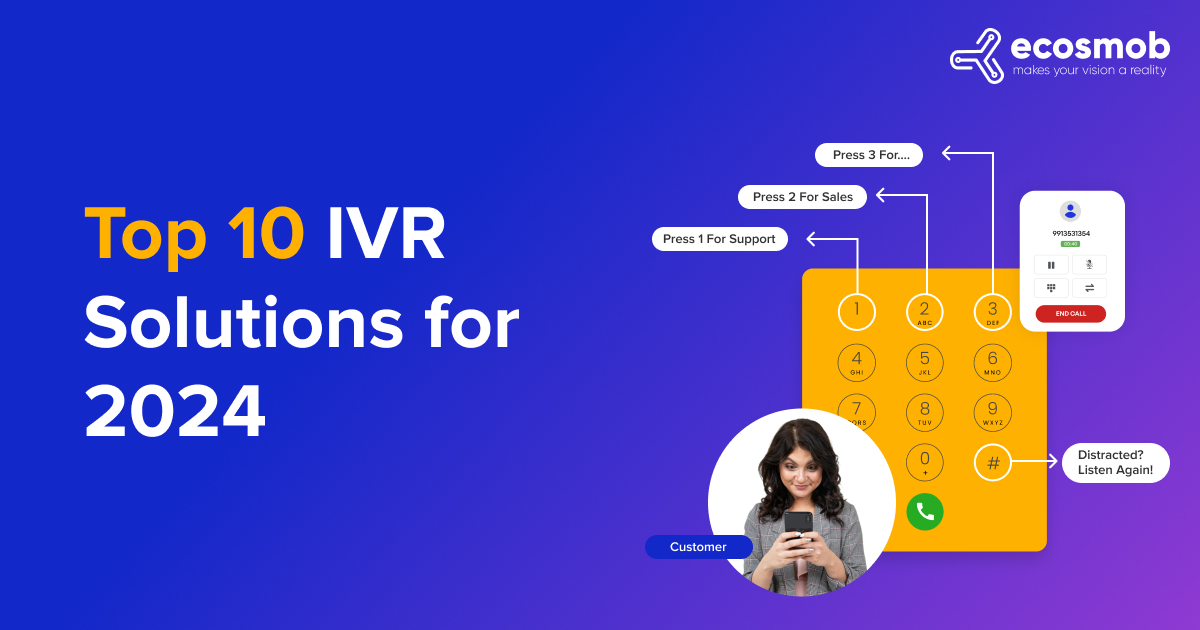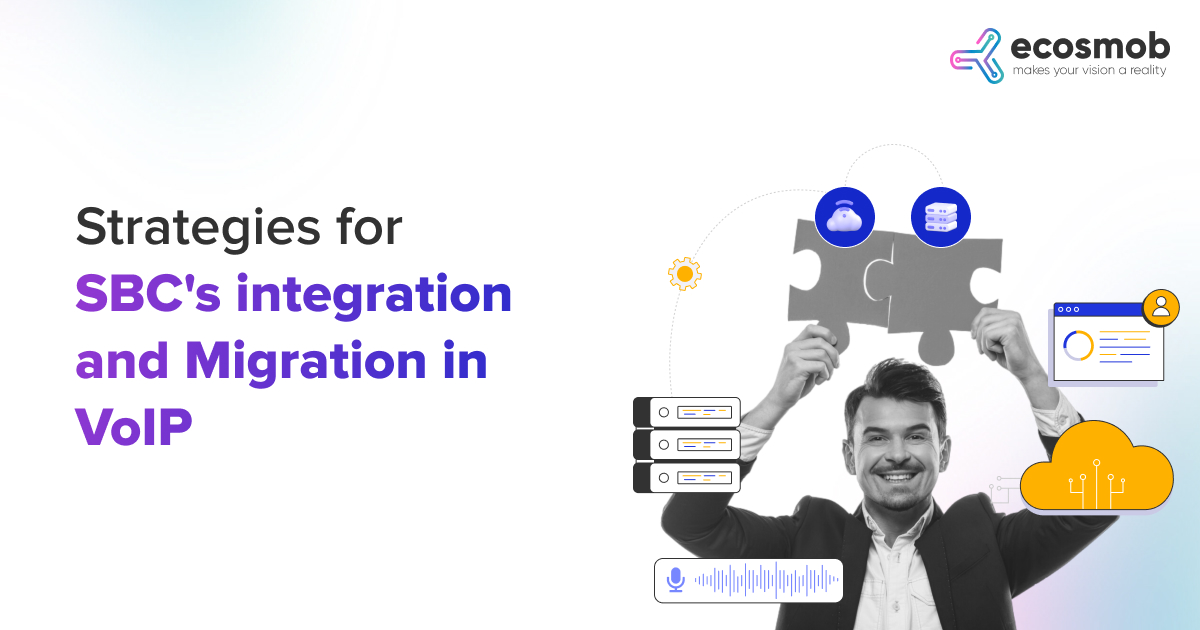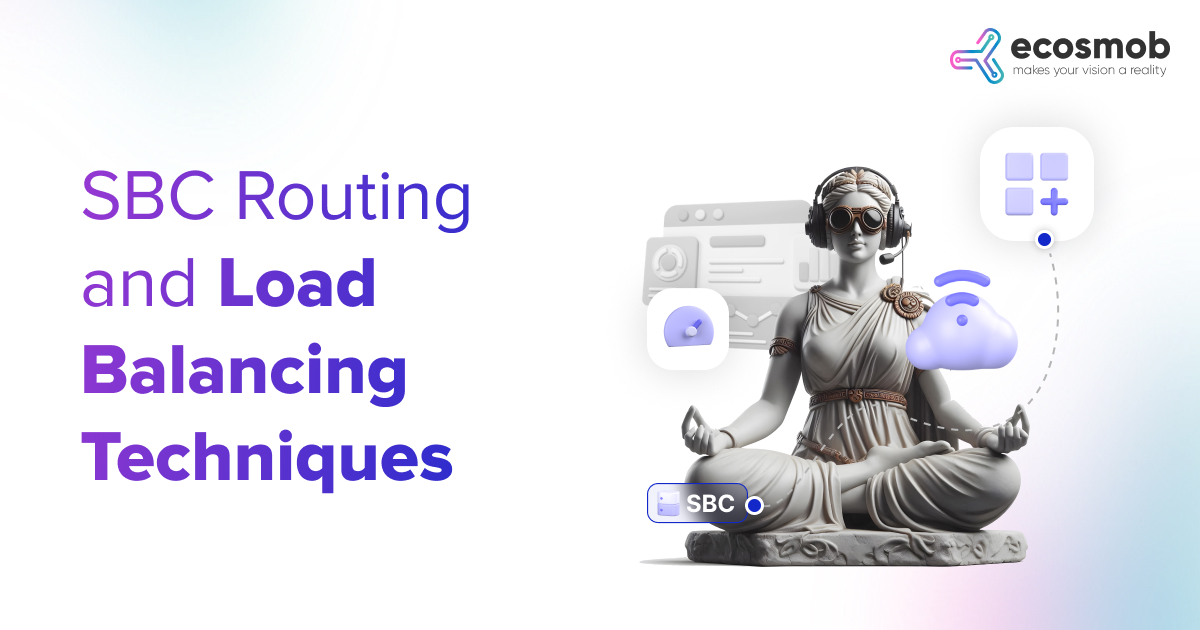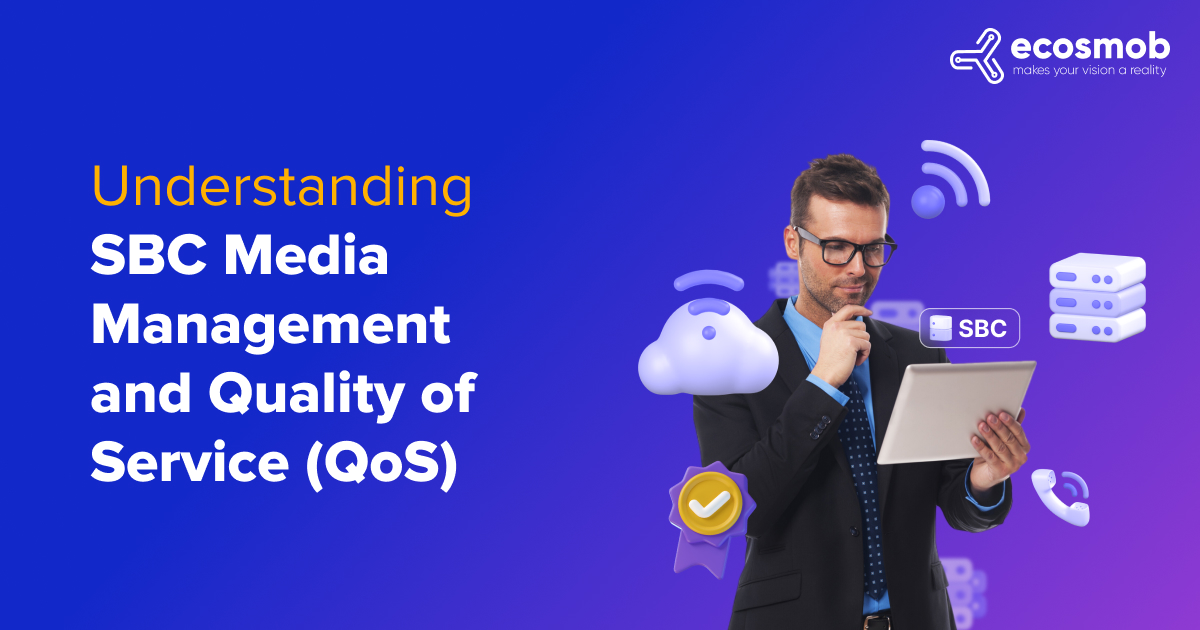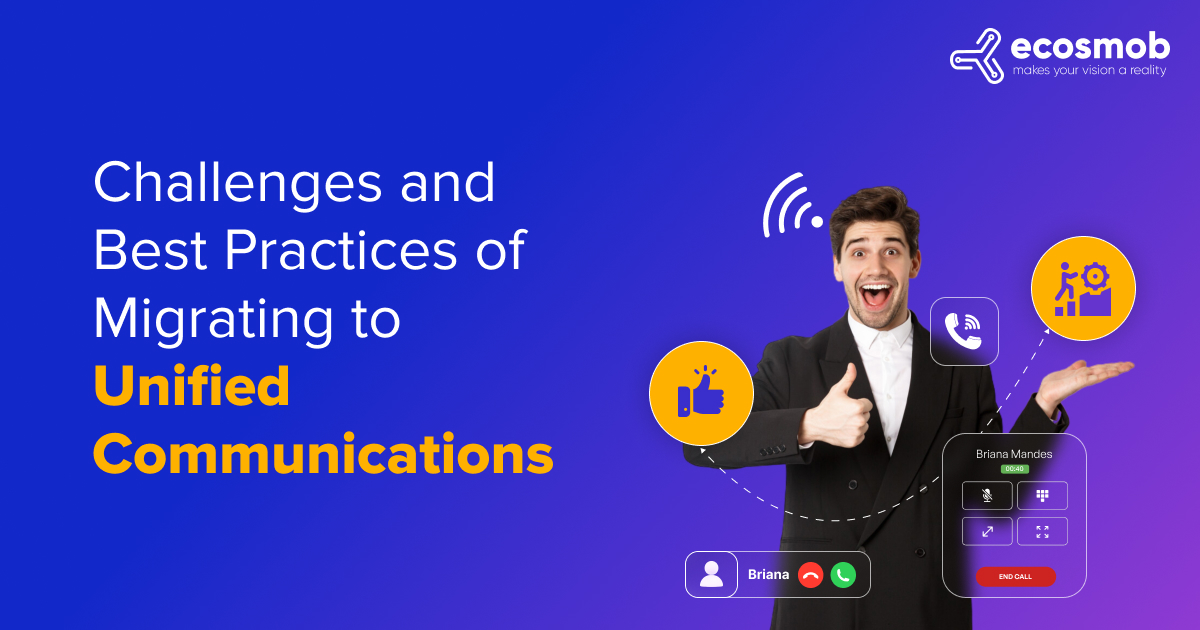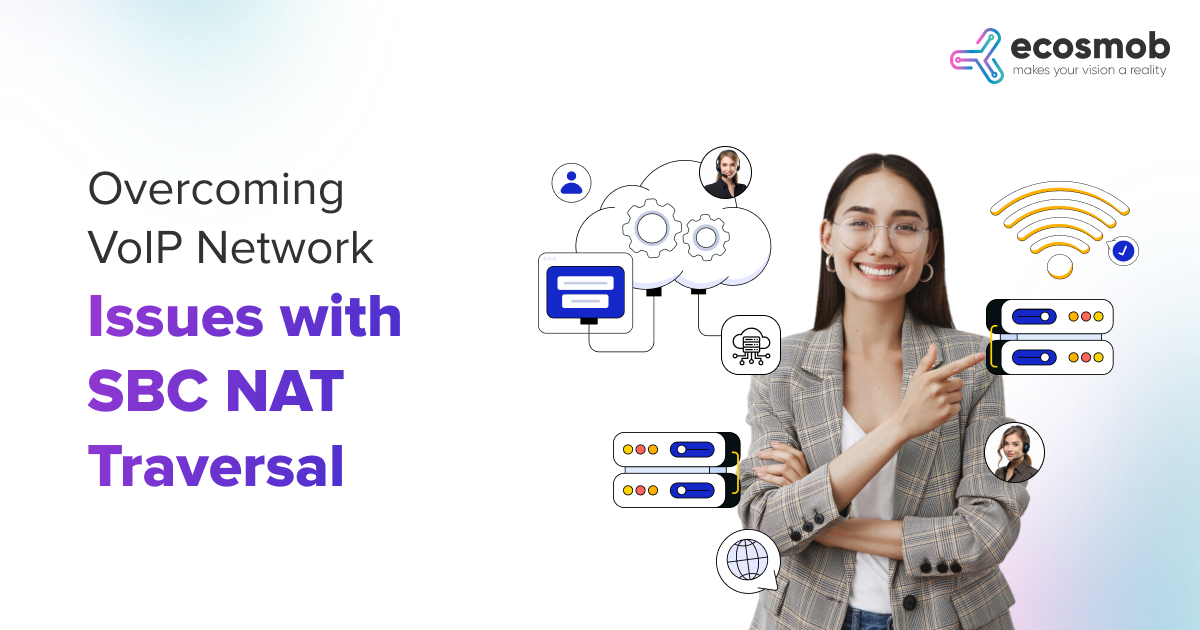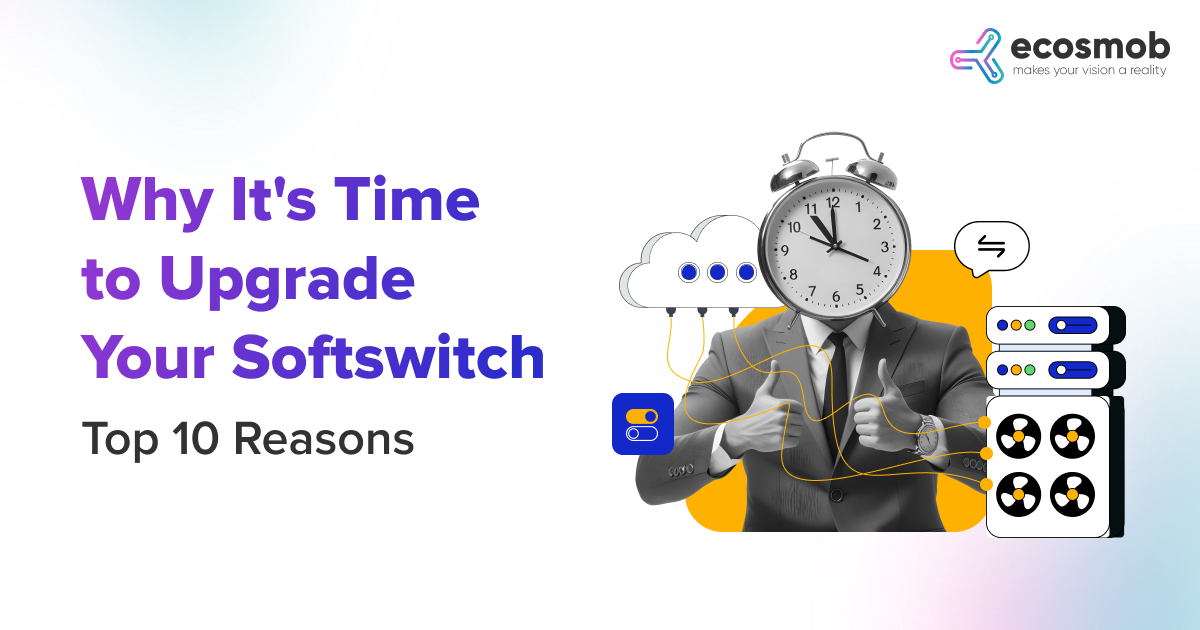For as long as businesses have existed, what has been a key pillar of their success?
Effective communication!
And now in the 21st century, the evolution of business communication has brought us to a transformative technology: VoIP, which redefines how businesses communicate in today’s digital age.
VoIP (Voice over Internet Protocol) transforms how businesses connect, collaborate, and cater to customers. If you’re looking for a VoIP solution that aligns with your business needs, whether it’s VoIP software development or seeking the best in business VoIP solutions, understanding the ins and outs of Voice over IP telephony is your first step.
First things first, how do we define VoIP?
What is VoIP?
VoIP (full form: Voice over Internet Protocol) is a cutting-edge technology that enables voice communications and multimedia sessions. A far cry from traditional telephony, VoIP has revolutionized how businesses communicate.
But what makes VoIP so transformative?
And how can your business leverage VoIP solutions for small businesses (and large enterprises!) or implement secure VoIP solutions to enhance operational efficiency?
Before we get to all that, let’s take a quick look at how VoIP became so crucial for businesses.
The Evolution and History of VoIP
VoIP has undergone a metamorphosis from its early stages in the late ’90s, evolving from a niche technology to a global communication standard. Initially, it was a workaround for expensive long-distance calls, utilizing the internet as a medium for voice transmission.
Developed to optimize bandwidth, VoIP has transcended its original purpose, becoming a staple in business communication infrastructures.
The history of VoIP is marked by significant milestones, from the first VoIP call made over ARPANET to the adoption of SIP VoIP protocols that heralded a new era of interoperability and quality.
The SBC VoIP, or Session Border Controller technology, emerged as a guardian of VoIP networks, managing and securing voice signals as they traverse the Internet. Meanwhile, developing and refining VoIP codecs—algorithms for encoding and decoding voice signals—have significantly enhanced call quality and efficiency, allowing HD voice communication even at lower bandwidths.
How Does VoIP Work?
At its core, VoIP converts your voice into digital signals, transmitting it over the Internet, bypassing traditional phone lines entirely.
VoIP technology captures your voice at the source, converting it into digital data packets. These packets travel through the internet, reaching their destination where they’re reassembled and converted into sound.
This journey is facilitated by VoIP protocols, with SIP (Session Initiation Protocol) being particularly crucial, establishing and terminating connections, handling authentication, and ensuring seamless communication.
The process of how VoIP works involves a series of key steps:
- Connection Setup: Your VoIP telephone connects to a switch or router in your LAN (Local Area Network).
- Dialing: When you dial a number, your VoIP software requests a connection to the recipient.
- Data Transmission: Once the call is established, data packets begin to flow between your VoIP phone and the VoIP server. These packets are encrypted at the source to secure the data as it travels across the network.
- Signal Conversion: At the receiving end, these encrypted digital signals are decrypted and converted back into sound, completing the communication process.
The process involves several key components:
- IP Phones: Devices tailor-made for VoIP compatibility, directly connecting to the internet or LAN.
- ATA (Analog Telephone Adapters): These allow traditional phones to connect to a VoIP network, converting analog signals to digital.
- SBCs (Session Border Controllers): They protect and regulate data flows, ensuring secure and reliable communication.
- VoIP Servers: Central hubs that manage calls, voicemail, and other communication services within a VoIP network.
VoIP FAQs: 40 Questions & Answers
Key VoIP Features and Benefits for Businesses
VoIP is about more than just making calls over the internet. It’s a suite of features designed to empower your business.
From hosted VoIP service solutions that eliminate the need for onsite equipment to VoIP features like call forwarding and audio/video conferencing, VoIP solutions offer a spectrum of functionalities that traditional phone systems can hardly match.
Moreover, VoIP integrates into unified communications solutions, facilitating a cohesive voice, video, and text communication platform. This integration is crucial for businesses to streamline their communication processes and enhance team collaboration.
Ready to get started with a custom VoIP system built around your needs?
Let’s take a look at some of the significant VoIP features for businesses:
- Call Forwarding: Automatically redirects incoming calls to another phone number. This is crucial for ensuring that no important calls are missed, even if employees are out of the office or on another line.
- Audio/Video Conferencing: Allows multiple users to participate in the same call, facilitating virtual meetings. This eliminates geographical barriers, enabling efficient team collaboration and client meetings without the need for physical presence.
- Voicemail to Email Transcription: Converts voicemail messages into text and sends them to your email. This feature is incredibly time-saving, allowing quick message retrieval without listening to voicemails sequentially.
- Interactive Voice Response (IVR): A technology that lets callers use a phone menu to find help before speaking to someone. It’s instrumental in handling high call volumes and directing customers to the right department or information.
- Unified Communications Integration: Combines voice, video, and text communication into a single platform. This streamlines communication processes within a company, enhancing productivity and team collaboration.
- Direct Inward Dialing (DID): Allows employees to have their own direct numbers without requiring multiple physical phone lines. This facilitates direct communication with employees, enhancing customer service and internal connectivity.
- Call Recording: Automatically records calls, which can be crucial for compliance, quality assurance, and training purposes. This feature ensures that businesses can review interactions and maintain high service standards.
- Find Me/Follow Me Call Routing: Allows calls to be received at various locations, on multiple devices, according to predefined rules set by the user. This ensures important calls are never missed, regardless of where the user is. Here is a list of the 90 Best VoIP Features To Grow Your Business.
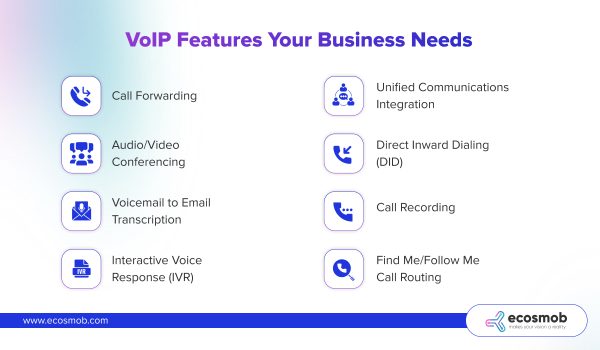
VoIP Features Your Business Needs
- Call Forwarding
- Audio/Video Conferencing
- Voicemail to Email Transcription
- Interactive Voice Response (IVR)
- Unified Communications Integration
- Direct Inward Dialing (DID)
- Call Recording
- Find Me/Follow Me Call Routing
How Does VoIP Help Businesses Save Money?
Getting to one of the most important VoIP benefits for businesses, here’s how VoIP will help your business operate better at lower costs:
- Reduced Call Costs: Businesses can significantly reduce traditional phone line costs by using the Internet for voice communication, especially for long-distance and international calls.
- No Expensive Hardware: Hosted VoIP solutions eliminate the need to purchase and maintain costly PBX hardware. Businesses pay for what they use, often on a subscription basis, leading to predictable and reduced overhead.
- Scalability: As businesses grow, their communication infrastructure can be scaled easily and at minimal additional cost, contrasting sharply with traditional systems requiring additional lines and hardware.
- Improved Efficiency: Features like IVR and voicemail to email enhance the customer experience and free up staff time, allowing them to focus on more productive tasks.
To further emphasize the transformative impact of VoIP on businesses, let’s compare Voice over IP phone systems with traditional phone systems:
VoIP Phone Systems vs. Traditional Phone Systems
| Feature | VoIP Phone Systems | Traditional Phone Systems |
| Initial Setup Cost | Low; primarily software-based with minimal hardware. | High; requires physical lines and hardware. |
| Call Costs | Significantly lower; especially for international calls. | Higher; costs vary significantly for long-distance and international calls. |
| Scalability | High; easy to add users and features without significant infrastructure changes. | Low; scaling up often requires additional lines and hardware. |
| Flexibility | High; can easily integrate with other digital communication tools and services. | Low; limited to voice calls and basic features. |
| Maintenance Costs | Low-hosted solutions mean maintenance is often the provider’s responsibility. | High; requires regular maintenance and upgrades. |
| Remote Work Compatibility | High; employees can access the phone system from anywhere with an internet connection. | Low; typically tied to a physical location. |
How to Choose the Right VoIP Solution?
When it comes to choosing a VoIP solution, businesses are faced with many choices. Choosing a VoIP solution is more nuanced than opting for the most popular or cost-effective option.
From hosted VoIP services that offer ease of use and scalability to custom VoIP software development for tailored solutions, the key is to assess your business needs. It involves understanding your business’s specific communication needs, anticipated growth, and technical capabilities.
For instance, a VoIP developer can tailor a system with custom VoIP features, while secure VoIP solutions are paramount for industries handling sensitive information.
Small businesses might lean towards VoIP solutions for small businesses, which provide cost-effective, scalable options. In contrast, larger enterprises might explore comprehensive business VoIP solutions that can accommodate complex requirements and ensure secure VoIP communications.
Here are some of the critical factors you need to weigh to ensure that your VoIP solution aligns perfectly with your business goals:
- Quality of Service (QoS): This guarantees that your voice traffic is prioritized on your network, ensuring crystal-clear call quality without lags or disruptions.
- Reliability and Redundancy: A reliable VoIP service means having robust backup systems, ensuring your communications remain uninterrupted, even during outages.
- Compatibility: Ensuring the VoIP system works seamlessly with your existing infrastructure and software avoids unnecessary expenditures on new hardware or software.
- Compliance and Security: Sticking to industry regulations and safeguarding your communications with end-to-end encryption and advanced security features protects your business from potential threats and legal issues.
Also, when evaluating a VoIP provider or developer, consider the following key questions:
- What is their experience in your industry?
Industry-specific knowledge can be crucial, especially when it comes to compliance and security.
- How scalable are their VoIP solutions?
It’s essential to ensure that the provider can accommodate your business’s growth without significant cost increases or technical challenges.
- What level of customer support do they offer?
Reliable customer support is vital for swiftly addressing issues and maintaining uninterrupted service.
- Do they offer comprehensive security features?
Given the rising cyber threats, ensure your VoIP solution includes end-to-end encryption, secure authentication, and other security measures. Here is more: Check out Top 10 Tips to Choose the Best VoIP Solutions for Small Businesses in 2024.
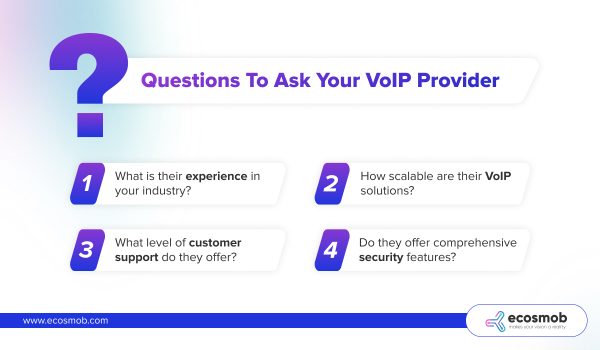
Questions To Ask Your VoIP Provider
- What is their experience in your industry?
- How scalable are their VoIP solutions?
- What level of customer support do they offer?
- Do they offer comprehensive security features?
Also Read: How To Choose The Right Technology Stack For VoIP Software Development?
VoIP is a gift that keeps giving.
Let’s talk about how VoIP will make growing and managing your business easier in the future.
Top VoIP Trends to Watch in 2024
The trajectory of VoIP is set towards continuous innovation. VoIP trends suggest a growing emphasis on AI integration, enhancing call quality, and automating customer service. Moreover, advancements in VoIP codecs and SBC (Session Border Controller) VoIP technology are paving the way for even more secure and efficient communication solutions.
- AI Integration: AI improves call quality, automates customer service through chatbots and voice assistants, and provides predictive analytics for better decision-making. This not only enhances customer experience but also streamlines operations. Here are the top 5 Ways AI is Redefining VoIP Software Development.
- 5G Technology: The rollout of 5G promises to significantly improve VoIP call quality and reliability, reduce latency, and allow for more high-definition calls and video conferences.
- Blockchain for Enhanced Security: Utilizing blockchain technology offers a new level of security and transparency for VoIP transactions, making call data virtually tamper-proof.
- IoT and VoIP Convergence: Integrating VoIP with IoT devices opens up new avenues for smart office solutions, such as voice-controlled environments, which can boost productivity and efficiency.
- Increased Mobile Integration: With the workforce becoming increasingly mobile, VoIP providers are focusing on better integration with mobile devices, allowing businesses to maintain connectivity no matter where their employees are.
- Unified Communications as a Service (UCaaS): This trend sees improved merging of VoIP into broader unified communications solutions, offering a cohesive platform for all communication needs, which enhances operational efficiency.
The global corporate VoIP market is growing remarkably, projected to reach a staggering $98.9 billion by 2026. This highlights the widespread adoption and trust in VoIP solutions worldwide, emphasizing its crucial role in the future of business communications.
As businesses navigate the digital landscape, staying on top of these VoIP trends of 2024 and understanding how VoIP fits into the broader spectrum of unified communications will be pivotal.
Wrapping Up
VoIP represents not just a technological advancement but a paradigm shift in seamless business communication and elevated operations with hosted VoIP service solutions. From its rich history to the expansive suite of features and the future VoIP trends shaping its trajectory, VoIP is undeniably a foundational element of the modern business infrastructure.
VoIP is not just an alternative to traditional telephony; it’s a transformative force in business communication, offering scalability, cost-efficiency, and a suite of features that traditional systems can’t match.
As you consider migrating to or upgrading your VoIP business phone system, remember that the right VoIP solution is not just about technology; it’s about empowering your business to communicate and operate more effectively in a digital world.
Whether you’re exploring VoIP for the first time or looking to enhance your existing setup with advanced VoIP solutions, understanding this technology is crucial. With the right VoIP solution, businesses can not only streamline communication but also unlock new potentials for collaboration and customer engagement.
Welcome to the future of communication; welcome to the world of VoIP.
Connect with Ecosmob’s highly experienced VoIP experts to understand what your business’ custom VoIP solution would look like!
Maximize your business potential with our VoIP solutions!
FAQs
What makes custom VoIP solutions different from off-the-shelf VoIP services?
Custom VoIP solutions are tailored to fit your specific business needs, providing flexibility and features that generic services might not offer.
Is a high-speed internet connection mandatory for VoIP?
While VoIP requires an internet connection, many solutions are optimized to work efficiently even with moderate-speed internet.
What happens to my VoIP system if the internet goes down?
Many VoIP providers offer failover options, such as call forwarding to mobile networks, ensuring continuous communication.
Are there any industries that cannot use VoIP due to compliance issues?
Most industries can use VoIP while adhering to compliance standards, as many VoIP providers offer solutions that meet various regulatory requirements.
What types of businesses benefit most from VoIP?
Companies across various industries and sizes can benefit from VoIP, especially those requiring scalable, flexible communication solutions.
What is DID VoIP API?
DID (Direct Inward Dialing) are numbers added to the extension of any organization or location to route calls without requiring additional setup of phone lines.
